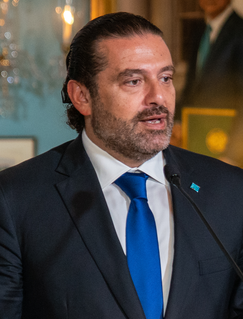Цитата Барака Обамы
Страны Персидского залива не без оснований относятся к Ирану с необычайным подозрением. Они считают, что Иран вмешивается в их дела. Они видели асимметричные атаки Ирана на их объекты или их интересы.
Связанные цитаты
После революции 1979 года Иран стал проводить политику сектантства. Иран начал политику расширения своей революции, вмешательства в дела своих соседей, политику убийств дипломатов и нападений на посольства. Иран несет ответственность за ряд терактов в Королевстве, он несет ответственность за контрабанду взрывчатых веществ и наркотиков в Саудовскую Аравию. А Иран несет ответственность за создание сектантских ополченцев в Ираке, Пакистане, Афганистане и Йемене, целью которых является дестабилизация этих стран.
В исламском мире США воспринимаются двумя совершенно разными способами. Одна точка зрения признает, какой необычной страной являются США. Другая точка зрения относится к официальным Соединенным Штатам, Соединенным Штатам армий и интервенций. Соединенные Штаты, свергнувшие в 1953 году националистическое правительство Мосаддыка в Иране и вернувшие шаха. Соединенные Штаты, которые были вовлечены сначала в войну в Персидском заливе, а затем в чрезвычайно разрушительные санкции против иракского гражданского населения. Соединенные Штаты, которые поддерживают Израиль против палестинцев.
В Соединенных Штатах Иран — не что иное, как мальчик для битья. Немногие американцы действительно используют Иран. Большинство из нас знает и помнит об Иране такие вещи, как кризис с заложниками в 1980 году, или они думают об иранских атаках в Ливане или о башнях Хобар. Таким образом, вы не получите большой политической выгоды в Соединенных Штатах, выступая и выступая за улучшение отношений с иранцами.
В силу географического положения основные мировые запасы нефти находятся в районах, где доминируют шииты. Нефть Ирана сосредоточена прямо возле залива, который является арабской территорией, а не персидской. Хузестан — араб, он был верен Ирану, во время ирано-иракской войны воевал с Ираном, а не с Ираком. Это потенциальный источник разногласий. Я был бы поражен, если бы в Хузестане не предпринимались попытки взбудоражить сепаратистские элементы.
Даже когда мы реализуем ядерную сделку и приветствуем наших американцев дома, мы признаем, что между Соединенными Штатами и Ираном сохраняются разногласия. Мы по-прежнему твердо выступаем против дестабилизирующего поведения Ирана в других местах, в том числе против Израиля и наших партнеров по Персидскому заливу, а также его поддержки насильственных прокси в таких местах, как Сирия и Йемен.
Война США с Ираном может закончиться курдским анклавом на северо-западе Ирана, связанным с иракским Курдистаном, азербайджанским севером Ирана, смещающимся в сторону Азербайджана, и белуджским анклавом на юге, связанным с крупнейшей провинцией Пакистана Белуджистаном, в результате чего Ирану останется только Персия.
Я считаю, что очень напряженные отношения между Соединенными Штатами и Ираном представляют собой вызов для Соединенных Штатов. Но обсуждать Иран как угрозу такого типа я нахожу несколько неубедительным, учитывая тот факт, что у Ирана на самом деле нет тех военных возможностей, которые были бы необходимы, чтобы называть его угрозой такого типа.
Генерал [Джеймс] Мэттис сказал, что сделка заключена. Мы не можем в одностороннем порядке выйти из него без поддержки со стороны наших союзников, потому что санкции не будут так сильно бить. И поэтому он найдет другие способы дать отпор Ирану в различных конфликтах, которые Иран разжигает вокруг [иранского] региона.
Международные инспекторы находятся на месте, и Иран подвергается самому всестороннему, интрузивному режиму инспекции, который когда-либо устанавливался для наблюдения за ядерной программой. Инспекторы будут следить за ключевыми ядерными объектами Ирана 24 часа в сутки, 365 дней в году. В ближайшие десятилетия инспекторы будут иметь доступ ко всей цепочке ядерных поставок Ирана. Другими словами, если Иран попытается сжульничать, если они попытаются тайно построить бомбу, мы их поймаем.





























